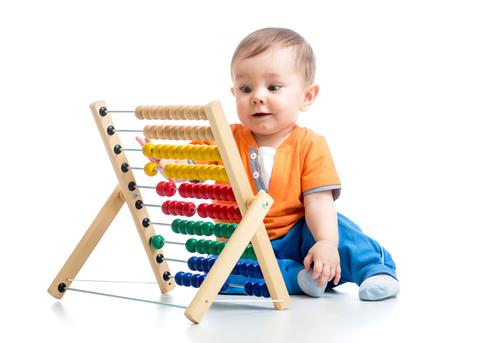Mathematics
Children Need Math in Kindergarten
Good kindergartens have a more critical role in child development than school. Children need an adaptable learning environment in kindergarten that includes mathematics.
By Professor Farrukh A. Chaudry, Faculty of Medicine at the University of Oslo and Dr. Philos Hanne S. Finstad, Founder of the Scientist Factory.
Kindergarteners who lack understanding of the value of numbers often struggle with arithmetic, fractions, decimals, and percentages when they get older. Scientific findings suggest that the brain goes through a critical period in developing number sense in the kindergarten years. When a child turns one year old, their brain will have doubled in size. At the age of three, it will be 80% of the size of an adult brain.
The brain goes through rapid development in these years, and children have to experience stimuli to avoid lasting damage. Children with reduced hearing, for example, are at risk of decreased brain development because they miss out on stimuli from speech unless the hearing difficulties are noticed quickly. By the time a child starts school, their brain is nearly fully grown. High-quality kindergartens are therefore important because a crucial foundation is laid in these years. An English study shows that 18 months in a good kindergarten can mean more for the math and language skills of 11-year-olds than six years of school.
Many fear that bringing learning into kindergarten will compromise the children’s time to play. But both free playing and pedagogy have essential roles in kindergarten and are necessary to provide a good foundation before school starts. This is especially true of mathematics. We develop and hone our innate number sense when we learn mathematics. This skill is connected to our ability to evaluate time and distances. Brain scientists who focus on mathematics often talk about “space, time and number in the brain.”
Children get critical spatial awareness from playing freely with building a hut or using building toys. Building toys can thus help children learn mathematics while they play. Playing in nature is also very beneficial to spatial awareness. But if they are to develop a precise understanding of quantities, they have to learn about numbers and counting.
For example, they will slowly connect the word “five” with the numeral “5.” This development can only happen if adults ensure repeated experiences with numbers and counting. This doesn’t have to be a major task. Short sessions with mathematical games one to two times a week over a few months will suffice and can make a big difference for the child’s mathematical understanding. Such a pedagogy can quickly be introduced without major losses to playtime.
Interest is also essential. The brain is awake and motivated to learn when we’re interested in something. And the interest in mathematics begins at an early age. A study of 118 kindergarteners aged three to five and a half confirms that. Their interest in mathematics was measured in the fall and again five months later. The results left no room for doubt. Even at this young age, there was a clear correlation between interest and skill. Increased interest meant increased skill, and advanced skill yielded increased interest.
Children cannot become interested in mathematics if they aren’t exposed to it. Therefore, kindergartens should implement a mathematics curriculum.
Freely playing has a crucial role in developing social skills and advanced thinking. Children learn how to stop, look, listen, and feel when they play. They become less impulsive and become more adept at understanding others. Kindergarteners who get to play a lot become more flexible and have better self-control than children who have a more school-like kindergarten.
This post was also published in Norwegian newspaper Dagens Næringsliv May 5th 2017.

